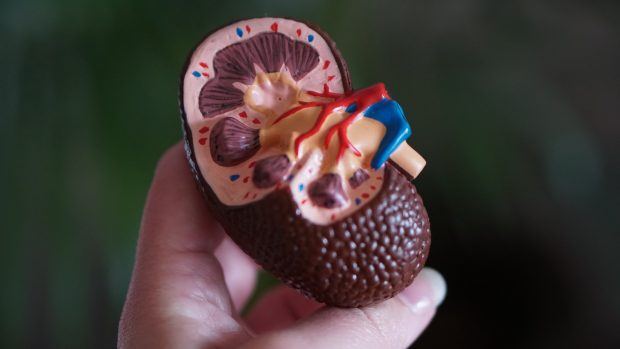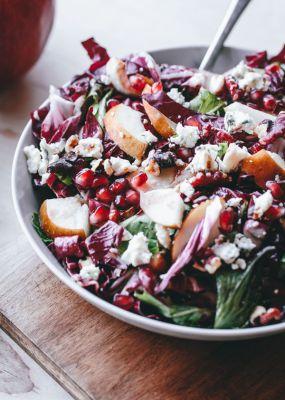Most of us are inclined to take our hard-working kidneys for granted. Yet, like all other vital organs, our kidneys enjoy daily healthy habits. Physical activity and enough sleep are essential for health, but so are our daily food choices. Our kidneys are responsible for eliminating waste and toxins. They also maintain fluid balance in our bodies, control blood pressure, and keep our bones healthy.
We need to remember to give our kidneys a second thought and see if there are a couple of lifestyle tweaks that could provide better support. High blood pressure, diabetes, and obesity tax the kidneys hard and can lead to chronic kidney disease (CKD) and renal failure. This may require dialysis or a kidney transplant when the condition becomes severe.
Let’s Eat For Kidney Health
Advances in nutrition science have led to revised nutritional guidelines for those at risk or living with CKD. ADSA (Association for Dietetics in South Africa) spokespersons, Dr Zarina Ebrahim, a Registered Dietitian and Lecturer at Stellenbosch University and Lynette Cilliers, a Registered Dietitian at Groote Schuur Hospital, collaborate to champion nutritional support and care for patients living with kidney disease.
In the past, people living with CKD faced a range of stringent dietary restrictions. Lynette says, “The liberalization of the dietary guidelines for CKD patients is now a sparkle of sunshine in a previously doom-and-gloom approach.”
She explains:
“We have moved away from outdated ‘do’ and ‘don’t’ lists to a more balanced approach of whole foods. This is important because people living with CKD must avoid malnutrition and enjoy a good quality of life. We’ve gone back to the basics of healthy balanced dietary intake.
We’ve kept it simple and natural by favoring the inclusion of foods such as whole grains, vegetables, and fruit, and limiting ultra-processed foods with additives.”
Lynette says that this transformative approach can benefit entire households. In fact, it can improve the physical, psychosocial, and financial health of a family affected by the risk factors for developing kidney disease.

Photo by Robina Weermeijer on Unsplash
Yes, these dietary guidelines are good for anyone aiming to protect their kidney health and those at risk. Yet, Dr. Ebrahim notes that those living with CKD must have individualized nutrition guidelines that take into account the stage of the disease, their current health assessments, and treatments. She says,
“The aim for CKD patients is to reduce the burden on the kidneys through nutrition, which means paying attention to the protein, potassium, phosphate, and sodium content of the foods they eat.”
Dr. Ebrahim says that with the help of a dietitian, you can determine healthy eating plans. This plan will reflect your food preferences, family life, and household budget, as well as your health needs.
Healthy kidneys mean a healthy you
What’s important to note is that the dietary guidelines for people living with CKD are sound advice for all.
Dr. Ebrahim says,
“You want to maintain a healthy weight.
Your nutritional focus should be on eating a variety of healthy foods to provide you with the right balance of energy and protein. Choose lean sources of protein such as skinless chicken, fish, and low-fat dairy, and include plant proteins such as beans and lentils. Also, whole grain foods such as wholewheat bread, brown rice, and oats are good choices as they provide fiber as well as energy.”
Dr. Ebrahim adds that you should avoid foods with added salt. You should also limit foods with additives, such as processed and convenience foods. These include pies, pastries, polonies, sausages, chips, and takeaways.
“Additives contain potassium and phosphate salts which are absorbed much quicker in your bloodstream than from natural food. This is problematic when your kidney function is deteriorating since the kidney struggles to excrete these minerals. You can flavor your meals with herbs and spices rather than salt. Make sure that you limit or completely avoid alcohol.”
Top tips for looking after your kidney health
- Enjoy what you eat – Experiment with different recipes and ingredients to make healthy and interesting meals.
- Small everyday commitments matter – Making healthy food choices ‘most days’ is how you change your dietary patterns.
- Move – Exercise is not a punishment; it celebrates that your body is able to move. Make it fun. You don’t have to hit the gym, dancing in your living room or gardening is also movement.
- Choose your liquids wisely – Consider how much sugar or additives are in your drink of choice. Are you hydrating appropriately for your body’s needs? Clean, safe water should be your first choice.
- Stop smoking – Your kidneys don’t like it.
- Look out for specials on healthy food items – Plan your meals in advance. This will make shopping and cooking much easier and more economical.
- Pack healthy meals for work – This is better than takeouts
- Manage your stress – Physical and emotional stress influences our health and sleep and has a knock-on effect on how we choose foods.
- Know your numbers – Get regular check-ups on your blood sugar levels, blood pressure, and weight. Early diagnosis and management of high blood pressure or diabetes can prevent the progression of kidney disease.
Who are the experts?
Dr. Zarina Ebrahim
Dr. Zarina Ebrahim is a dietitian and lecturer at the Division of Human Nutrition, Stellenbosch University, Cape Town, South Africa. Her PhD focused on the effects of the gut microbiome on chronic kidney disease (CKD) predialysis participants.
Dr. Ebrahim’s main interest is in CKD nutrition, and she teaches and supervises undergraduate and postgraduate student research in this field. Her other interests include obesity and chronic diseases of lifestyle.
She is currently an ISRNM member and part of the educational resources committee, the Global Recipes Initiative as well as the ISN/ISRNM renal nutrition education committee for low to middle-income countries.
Lynette Cilliers
 Lynette Cilliers is a clinical dietitian at Groote Schuur Hospital and in the private sector. She is experienced in the specialized nutritional management of a variety of patients (including critically ill, intensive care, surgical, and medical patients). She has a special interest in the nutritional management of patients with Neurological Deficits, Stroke, Renal disease, Liver disease, and the area of Palliative Care.
Lynette Cilliers is a clinical dietitian at Groote Schuur Hospital and in the private sector. She is experienced in the specialized nutritional management of a variety of patients (including critically ill, intensive care, surgical, and medical patients). She has a special interest in the nutritional management of patients with Neurological Deficits, Stroke, Renal disease, Liver disease, and the area of Palliative Care.
Since 2013, she has been working at Groote Schuur Hospital, focusing on Clinical Nutrition. Lynette has a passion for practically integrating healthcare into the daily lives of patients.





![women [longevity live]](https://longevitylive.com/wp-content/uploads/2020/01/photo-of-women-walking-down-the-street-1116984-100x100.jpg)










